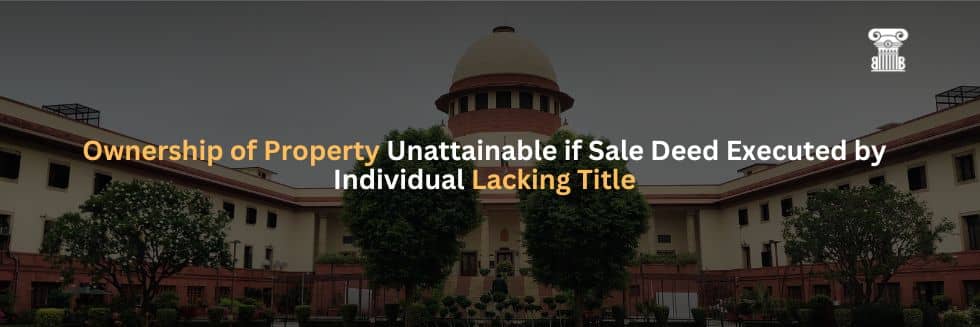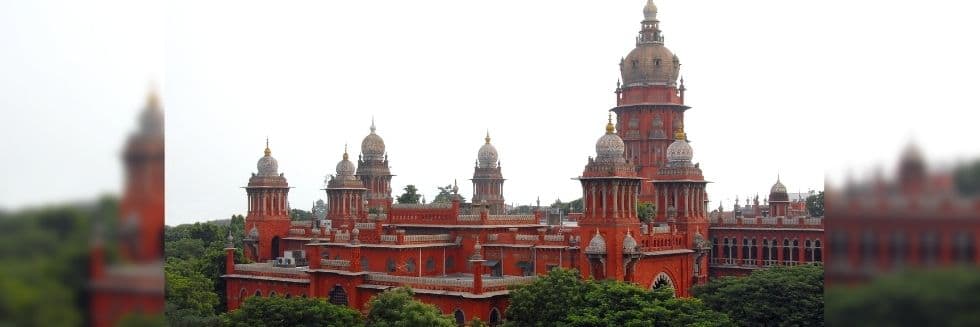In the case of Savitri Bai and Anr. v. Savitri Bai, the Supreme Court addressed a property ownership dispute where defendant no. 1 participated in selling a property bequeathed to defendant no. 2 without his involvement. The plaintiff claimed ownership based on defendant no. 1’s participation but the Court ruled that lacking title, defendant no. 1 couldn’t transfer ownership. The Court emphasized that defendant no. 1’s involvement didn’t benefit the plaintiff and the will properly bequeathed the property to defendant no. 2. Thus, the Court overturned the High Court’s decision affirming that signing a sale deed without title doesn’t grant ownership.
CASE DETAILS:
Savitri Bai and Anr. v. Savitri Bai
Civil Appeal No. 7257 of 2011
Supreme Court
Coram: Justices Sanjay Karol and Sanjay Kumar
BRIEF FACTS:
- A property was bequeathed through a ‘Will’ in favour of defendant no. 2 who is the son of defendant no.1(the mother). The property was bequeathed by the father (Babulal) of defendant No. 1 to her son.
- Several properties held by Babulal were sold to the plaintiff and defendant no.1 participated in the execution of the sale deeds as a signatory. Among these sale deeds, one pertaining to the property bequeathed to defendant no.2 and defendant no.1 also signed this sale deed. However, defendant No. 2 was not a party to this sale deed.
- The plaintiff sought ownership or possession of the property based on the fact that defendant no.1 being the mother of defendant no.2 was a signatory to the sale deed.
- Defendant no.1 argued that she neither sold the property to the plaintiff nor delivered possession to them. She stated that being uneducated, she trusted relatives who had her sign multiple sale deeds.
- The Trial Court and the First Appellate Court dismissed the plaintiff’s suit stating that the title of the disputed property vested in defendant no.2 could not have been transferred to the plaintiff.
- However, the High Court reversed the lower court’s findings and declared the plaintiff as the real owner.
- The defendant appealed this decision to the Supreme Court.
OBSERVATIONS:
The Supreme Court ruled that the plaintiff could not claim title over the property in which defendant no.1 was a signatory to the sale deed because defendant no.1 did not have the authority to transfer the property to the plaintiff. Additionally, the Court noted that defendant No. 1’s participation in signing the sale deed did not benefit the plaintiff as she did so under the mistaken belief that she was selling her family’s share in the properties.
The Court emphasized that defendant No. 1’s involvement in the sale deed did not assist the plaintiff especially considering that the Will was properly executed in favor of defendant No. 2 as evidenced by the testimony of the attestors.
Referring to the case of H.Venkatachala Iyengar v. B.N.Thimmajamma, the Court emphasized that once the requirements of Sections 68 of the Evidence Act, 1872 and Section 63 of the Indian Succession Act, 1925 were met, the Will was considered valid in the eyes of the law and could not be disregarded without proper justification.
JUDGEMENT:
The Supreme Court ruled that a sale deed executed by a person who is not the owner of the property does not entitle the plaintiff to claim ownership or possession of the property. Reversing the decision of the High Court which had declared the plaintiff as the owner of the property, the Bench comprising Justices Sanjay Karol and Sanjay Kumar observed that the mere participation of a person who does not hold title to the property as a signatory to the sale deed does not grant ownership or title to the plaintiff.






